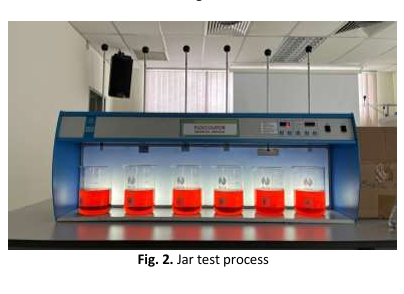Investigating the Efficiency of Papaya and Date Dry Seeds as Natural Coagulants in the Wastewater Treatment Process
DOI:
https://doi.org/10.37934/ard.131.1.6175Keywords:
Coagulant, water treatment, papaya seed, date seed, textile wastewaterAbstract
Industrial effluent contaminants include insoluble substances, heavy metals and organic and inorganic compounds. The textile industry has a hard time dealing with its waste because it contains a lot of different colours and chemicals. To treat industrial effluent, coagulation-flocculation is frequently employed due to its efficacy in removing suspended particles organic matter, turbidity and colour. Conversely, employing a chemical coagulant may result in significant costs and the production of considerable quantities of non-biodegradable waste and metallic byproducts in the treated water, both of which face contamination risks by pollutants and diseases. An environmentally sustainable, non-toxic and biodegradable alternative method under consideration of utilising natural coagulants derived from plants, namely papaya seed and date seed. This study uses different NaCl concentrations to see how well papaya seed and date seed work as natural coagulants in treating textile industry wastewater. NaCl was the solvent and distilled water was used to extract the natural coagulant. Chemical Oxygen Demand (COD), turbidity, ammonia nitrogen and pH were assessed to evaluate the textile wastewater sample's response to papaya and date seed purification. The experiment's findings indicate that papaya and date seeds possess exceptional coagulation properties. The optimum turbidity reduction efficiency for papaya seed was 61.48% when 30 ml of a 1.0 NaCl concentration solvent was utilised. On the other hand, date seed removed turbidity with an efficiency of 83.96% when 10 ml of a 1.0 NaCl solvent was utilised. Aside from that, 1.0M NaCl was found to be the most effective COD reduction solution for the Carica papaya seed, while 2.0M NaCl resulted in a 56.19% reduction for the date seed. In addition, 30 ml Carica papaya seed coagulant dosage containing 2.0M NaCl produced the most significant reduction in ammonia nitrogen (82.84%). Also, the dosage of 20 ml date seed coagulant containing 2.0M NaCl eliminated 43.33% of ammonia nitrogen. The study's findings illustrated the potential advantages of utilising papaya and date seeds as organic coagulants in the remediation of effluents from the textile industry.
Downloads























